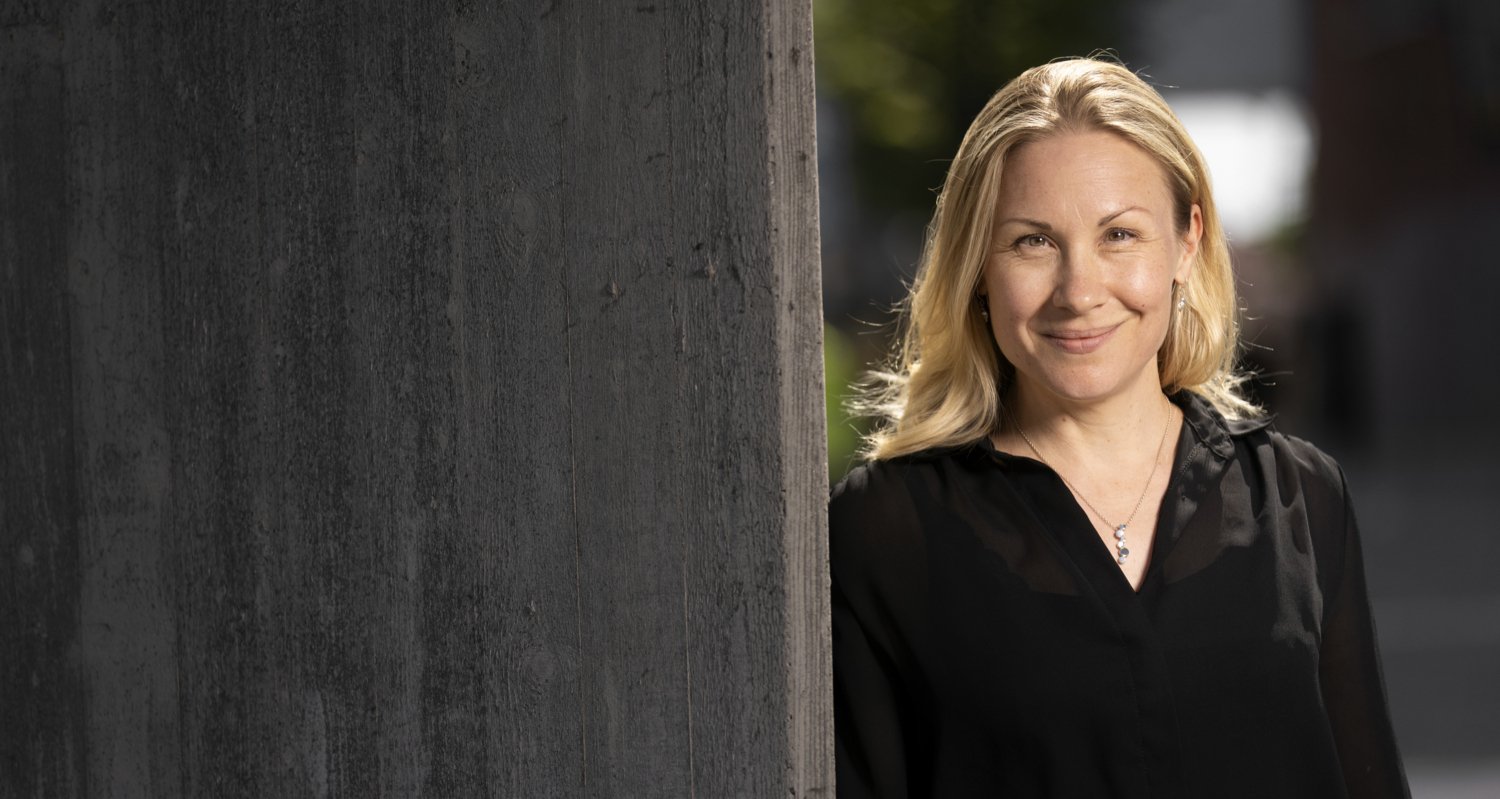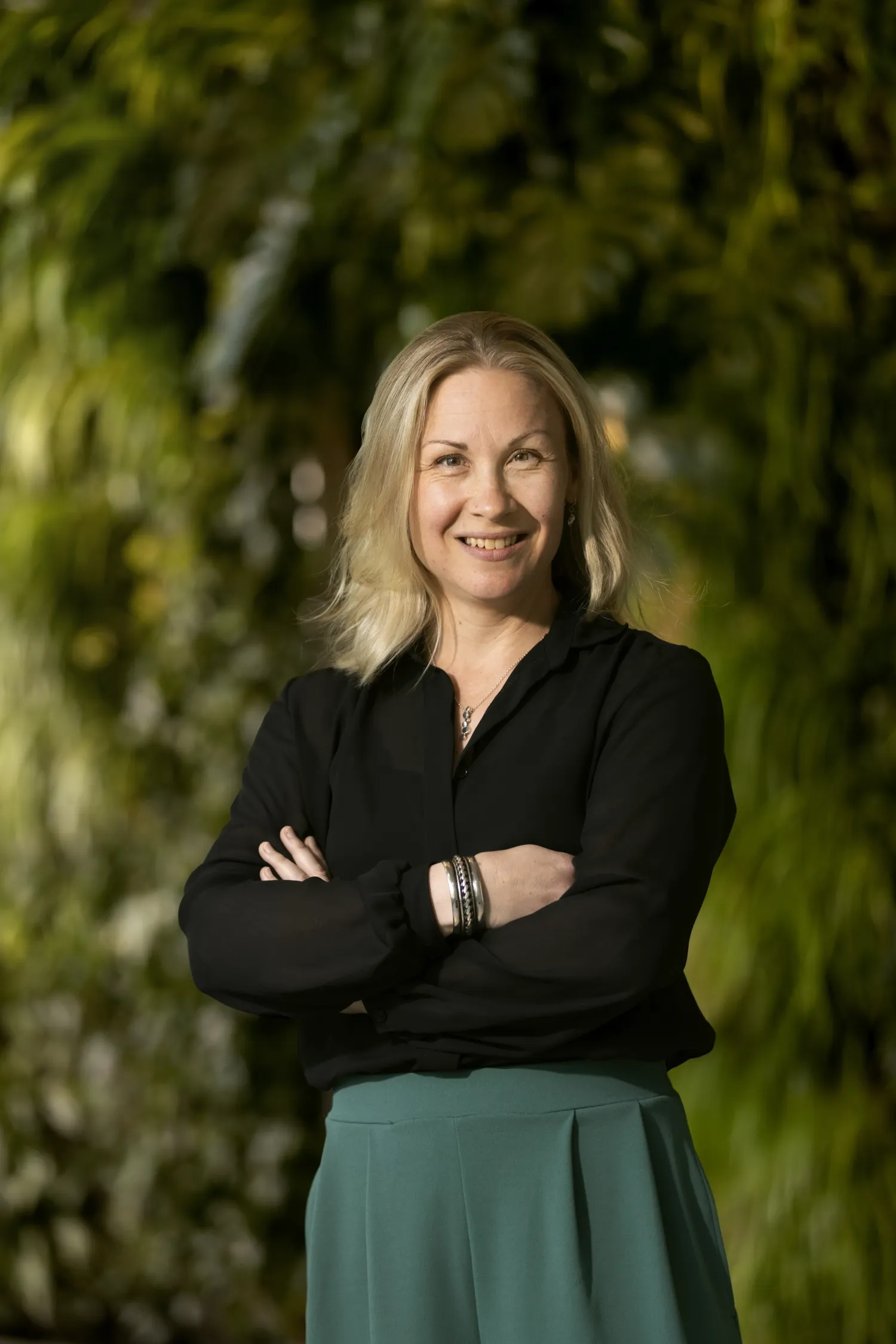Researching how chemicals and drugs affect female fertility

The decision to have a child or not should belong to individuals, not to pollution in their environment, argues Pauliina Damdimopoulou, who studies how the chemicals in our environment affect the ovaries and the egg cells they contain. Meet one of the new professors of Karolinska Institutet who will participate in this year's installation ceremony at Aula Medica on 9 October.
Text: Karin Tideström, for KI’s installation ceremony booklet 2025
What are you researching?
“I’m deeply curious about the connection between environmental exposures, medical treatments and female fertility. Women are born with all their egg cells already formed and enclosed in follicles for decades before starting a family. How cumulative exposure to chemicals across a woman’s life affect these cells remains poorly understood. My work aims to understand how ovaries and eggs react to chemical exposure and to produce new methods for predicting reproductive toxicity.”
Why is this important?
“The decision to have a child or not should belong to individuals, not to pollution in their environment. It is fundamentally important to ensure that the chemicals and pharmaceuticals we use have as little impact on fertility as possible.”

How are you going about this?
“We use human ovarian tissue samples to investigate how exposure to chemicals and cytostatics affect different cell types. My aim is to find which cells in the ovary are most sensitive to the exposures and how they respond. Thereafter we’ll be able to develop models of ovaries that can predict how different substances impact fertility.”
What are your findings to date?
“We’ve discovered extensive mixtures of industrial chemicals in human ovaries and found that the level of exposure is linked to altered ovarian function, fewer egg cells and reduced embryo quality.”
How do you hope your results will be used?
“My dream is to find methods that can reliably predict the effects on fertility and that can be applied to the thousands of chemicals and drugs already in use and yet to be developed.”
About Pauliina Damdimopoulou
Professor of Reproductive Biology at the Department of Women’s and Children’s Health
Pauliina Damdimopoulou (born Penttinen) was born in Taivassalo, Finland, in 1980. She earned her MSc in biochemistry and food chemistry from the University of Turku (Åbo) in 2005, where she also completed a PhD in cell biology in 2008, focusing on dietary impacts on oestrogen signalling. After an industrial postdoc on androgen signalling in France and an academic postdoc in reproductive biology at Karolinska Institutet, she started her own lab in 2014. She now leads a research group on chemicals and female fertility at Karolinska Institutet. Pauliina Damdimopoulou was appointed Professor at Karolinska Institutet on 1 May 2025.
